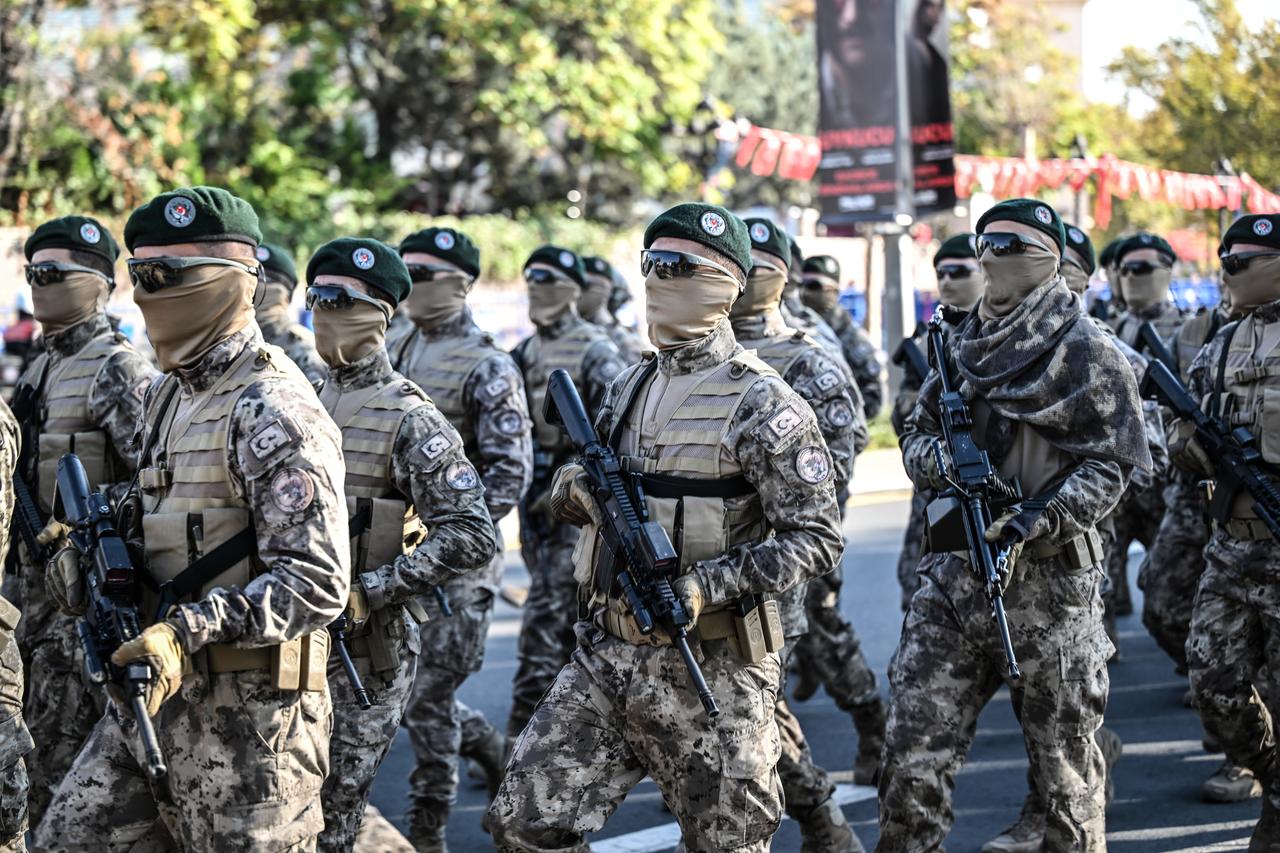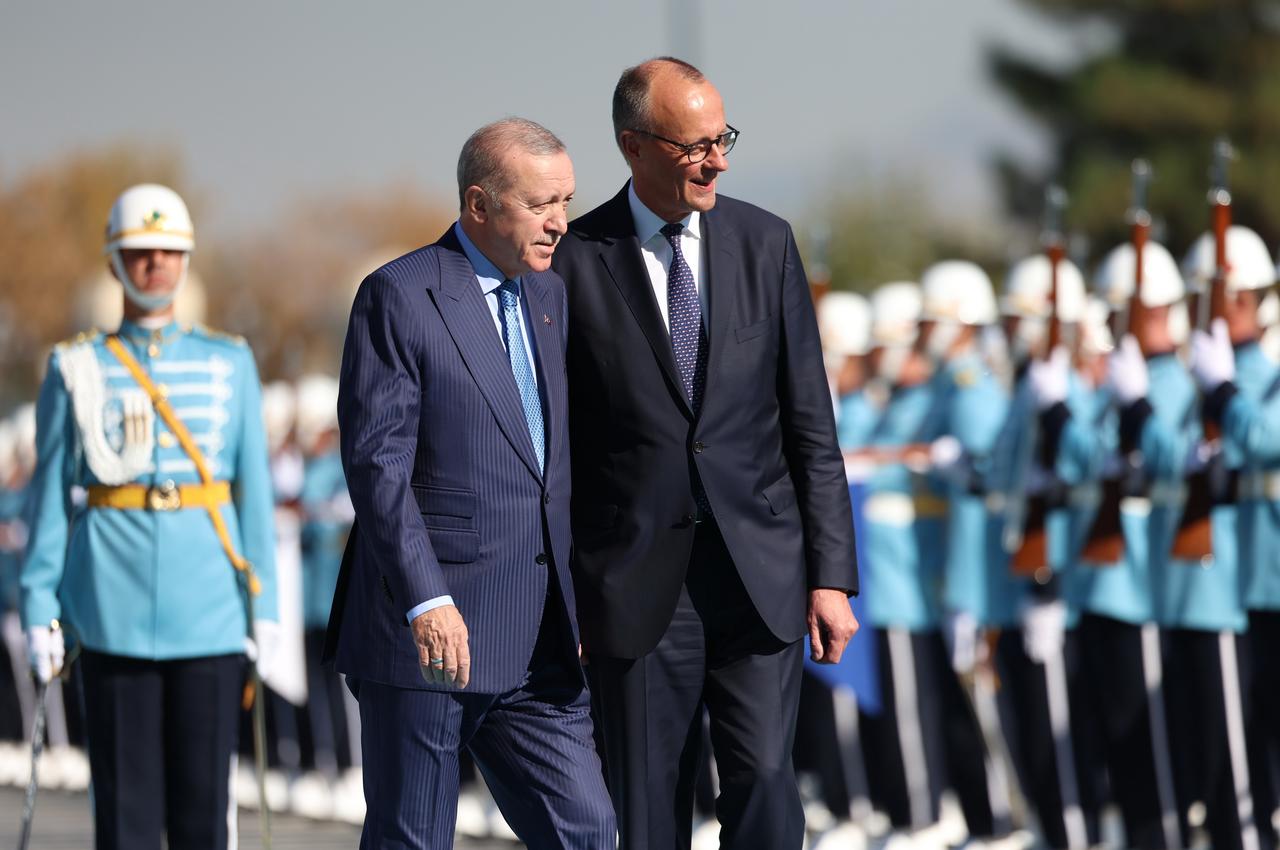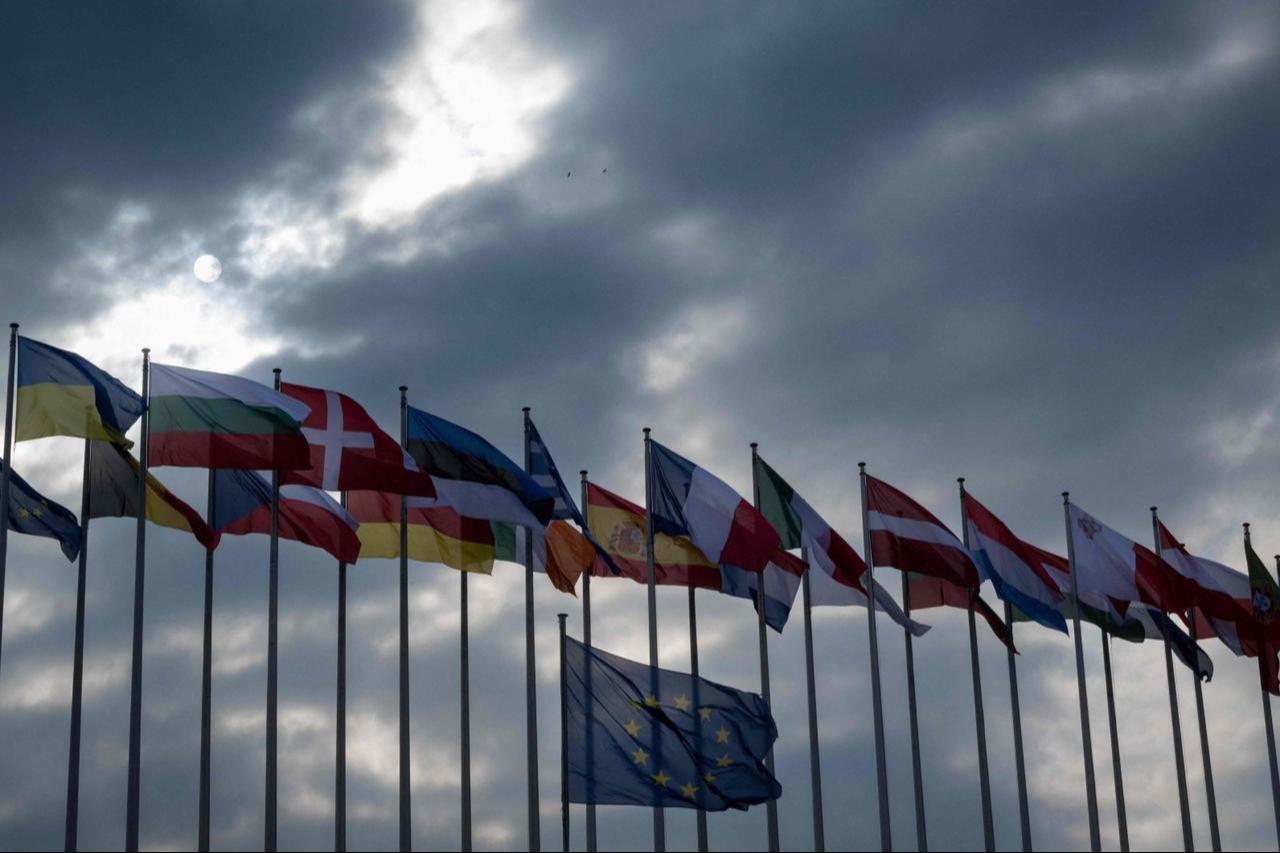
Türkiye hopes to secure German support to access the European Union's €150 billion ($173.7 billion) Security Action for Europe (SAFE) defense initiative despite Greek opposition, a Turkish defense ministry source cited by the Agence France-Presse (AFP) said Thursday as German Chancellor Friedrich Merz visits Ankara.
Merz, who flew in late Wednesday, met with President Recep Tayyip Erdogan in the Turkish capital with talks expected to focus on defense, security, and migration, sources on both sides said.
"During the German chancellor's visit, the SAFE mechanism will be discussed and how Türkiye will access it," the defense ministry source said.
"This is an important visit in that sense. There's only Greece's blocking Türkiye's participation in SAFE (and) Germany could play a role in overcoming this. It seems this is also what Germany wants. Europe needs to decide on this issue," the source added.

The Security Action for Europe (SAFE) was adopted by the Council of the European Union on May 27, and entered into force on May 29.
SAFE is the EU's new financial instrument designed to provide financial support to Member States to speed up defense readiness by allowing urgent and major investments in support of the European defense industry, with a focus on closing critical capability gaps.
SAFE will provide up to €150 billion in competitively priced, long-maturity loans to Member States requesting financial assistance for investments in defense capabilities. These loans will finance urgent and large-scale procurement efforts, ensuring that Europe's defense industry can deliver the necessary equipment when it is needed most.
Although Türkiye is technically eligible for SAFE, it requires approval from all 27 EU members — a move which Greece has threatened to block.
"If Ankara was not able to access the SAFE initiative, the question would be "how (Türkiye) will develop defense relations" with Europe," the defense source said.
In July, Greek Prime Minister Kyriakos Mitsotakis said Athens would not allow Türkiye to participate in the defense scheme. Meanwhile, Germany has signaled possible support for Türkiye's request to access the scheme, which aims to strengthen European defense capabilities.
Berlin has said the pair will discuss bilateral and foreign policy issues as well as closer cooperation on migration, security and business.

During the talks, Merz — whose government took office in May promising a crackdown on irregular migration — wants to secure Türkiye's help in taking back more rejected asylum seekers.
"After initial progress in recent months, Berlin is looking for 'further concrete steps' from Ankara," a German source cited by AFP said.
Germany is home to the largest Turkish community outside of Türkiye, numbering some three million people.
Berlin is also looking to resume deportations to Syria and is hoping to secure support from Türkiye, which has close ties to the new Syrian government. Merz's visit to Ankara comes as his top diplomat, Foreign Minister Johann Wadephul, makes his first visit to Syria, where he will meet President Ahmed al-Sharaa.
To maximize impact and reduce fragmentation, SAFE projects will be based on common procurement, involving at least one Member State benefiting from SAFE and another Member State, as well as Ukraine and EEA-EFTA countries.
However, in light of current geopolitical realities, SAFE will also temporarily support procurements by individual Member States to ensure the timely delivery of critical assets.
EU borrowing to finance the new programme will enable competitively priced, attractively structured long-duration loans to requesting Member States. The terms of these loans benefit from the EU's strong credit rating.
Across procurement categories, contracts must ensure that no more than 35% of component costs originate from outside the EU, EEA-EFTA, or Ukraine.
Category 2 projects must meet stricter eligibility conditions, including contractors' capacity to modify the equipment, if needed, without non-EU restrictions.

SAFE marks a new chapter in EU cooperation with "trusted third countries." From the outset, Ukraine and EEA-EFTA countries will participate on equal terms with EU Member States.
This includes eligibility for joint procurement and procurement from their defense industries.
While only Member States can obtain SAFE loans, the following countries may participate in common procurement: EU acceding, candidate, and potential candidate countries; countries that have signed Security and Defense Partnerships with the EU, such as Albania, Canada, Japan, Moldova, North Macedonia, Norway, South Korea, and the United Kingdom.
Additional bilateral or multilateral agreements may be concluded to broaden participation and eligibility.
Member States can submit national plans to access funding and begin implementing procurement projects aligned with EU priorities.
The timeline includes: